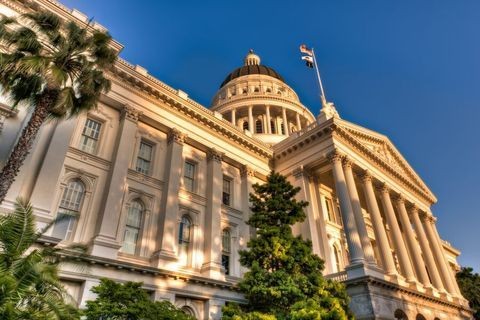SCOTUS: U.S. Discovery Under 28 U.S.C. § 1782 Not Available in International Commercial and (Some) Investment Arbitration
Client Alert | 7 min read | 06.14.22
Can a party in an international arbitration compel a person in the United States to provide testimony or produce documents? For decades, the answer to this question has been “maybe, depending on where the person is located.” Today, the Supreme Court definitively and unanimously answered this question, and the answer may leave some pleased and others disappointed.
28 U.S.C. § 1782(a) provides that “a district court of the district in which a person resides or is found may order him to give his testimony or statement or to produce a document or other thing for use in a proceeding in a foreign or international tribunal, including criminal investigations conducted before formal accusation.” There has been much debate and often inconsistent federal court rulings regarding whether an international arbitral tribunal constitutes “a foreign or international tribunal” under § 1782.
In its opinion issued on June 13, 2022, the Supreme Court unanimously held that only a governmental or intergovernmental adjudicative body constitutes a “foreign or international tribunal” under § 1782, and that the arbitral bodies involved in the cases before it—one commercial arbitration and one ad hoc investment arbitration—do not qualify. The decision resolves the longstanding Circuit split on whether U.S. courts may order and compel discovery to aid in private international commercial and investment arbitrations.
The Court based its reasoning on a number of factors, including:
- The term “foreign tribunal” more naturally refers to a tribunal belonging to a foreign nation, and for it to belong to a foreign nation, the tribunal must possess sovereign authority conferred by that nation. Similarly, an “international tribunal” is one that involves two or more nations, meaning that those nations have imbued the tribunal with official power to adjudicate disputes.
- Extending § 1782 to include private bodies would be in significant tension with the Federal Arbitration Act (“FAA”), which governs U.S. domestic arbitration. This is because § 1782 permits much broader discovery than the FAA allows, which would result in parties to international arbitration having significantly greater access to U.S. discovery than parties to U.S. domestic arbitration.
- The animating purpose of § 1782 is comity. Permitting federal courts to assist foreign and international governmental bodies promotes respect for foreign governments and encourages reciprocal assistance. It is difficult to see how enlisting district courts to help private bodies would serve that end.
Anticipated Impact
Non-party targets of discovery will likely experience relief as the Court’s decision forecloses most instances where a non-party would be dragged into a private dispute. The narrower scope of permissible discovery in international arbitration has often been cited as one of the reasons it offers a more cost-effective and efficient method of dispute resolution than alternatives. Discovery under § 1782 threatened to undermine those virtues. The Supreme Court’s decision is also anticipated to reduce the time and costs associated with filing and opposing applications under § 1782, in addition to the frequent appeals of orders resulting from those applications.
However, many parties arbitrating disputes, particularly those who are accustomed to or otherwise favor the expansive style of discovery afforded in the United States, are sure to be disappointed by this result and may face frustration in obtaining critical and relevant evidence to aid in their disputes. While the Court’s decision does not affect the authority of arbitral tribunals to order discovery from the parties to a dispute, regardless of where they are located, this power is now necessarily limited to only parties that have consented to the arbitral panel’s jurisdiction.
Importantly, the Court’s opinion with regards to investment arbitration was tailored to ad hoc investment arbitration, and does not fully or directly address other forms of investment arbitration. For example, while the Court briefly notes that international claims commissions may have sufficient governmental character to qualify, it does not directly address arbitrations conducted through other means, such as the International Centre for Settlement of Investment Disputes (“ICSID”), an institution created by the World Bank. Whether an ICSID proceeding would fall within the scope of § 1782 remains unclear, but it is worth noting that Member States participate in the ICSID Administrative Council and determine the general direction of the organization. Nonetheless, it remains to be seen whether this involvement is sufficient to confer the requisite governmental authority to qualify as an “international tribunal” under the Court’s new interpretation.
In light of the Supreme Court’s decision, parties facing the prospect of cross-border disputes should consider the following recommendations:
- Parties contemplating arbitration should be confident in the merits of their claims based on the evidence already available to them, which may require additional due diligence prior to initiating proceedings.
- For those considering instituting investment proceedings, if obtaining an order for discovery in the U.S. is known to be critical to their case, they may consider whether the treaty under which the arbitration is being considered provides any forums that would otherwise qualify as a “governmental or intergovernmental adjudicative body” for purposes of § 1782, including foreign litigation forums. However, parties will also need to understand what evidentiary procedures and confines exist within that particular forum and whether such evidence would be admissible.
- When entering into a cross-border contract where a third-party U.S.-based person or entity may have a significant role in the transaction or project at issue, the contracting parties should consider whether it is possible and favorable to designate a U.S.-based forum for dispute resolution that would facilitate any third-party discovery.
Overview of Cases at Issue
The Supreme Court consolidated and decided two cases in its ruling. In both cases, the party seeking discovery invoked § 1782, and in both, the party resisting discovery argued that the arbitral panel at issue did not qualify under the statute. While the cases presented different factual contexts, they shared the same threshold legal question and the Supreme Court concluded that the arbitral panel in both cases did not fall within the scope of § 1782.
International Commercial Arbitration: ZF Automotive v. Luxshare, Ltd.
The parties’ dispute arose from a sale of two business units by ZF Automotive US, Inc., a Michigan-based manufacturer and subsidiary of a German corporation, to Luxshare, Ltd., a Hong Kong-based company. The parties’ contract provided that all disputes would be exclusively and finally settled by three arbitrators in accordance with the Arbitration Rules of the German Institution of Arbitration e.V. (“DIS”), a private dispute-resolution organization based in Berlin, Germany.
Ahead of instituting arbitration proceedings, Luxshare filed an ex parte application under § 1782 in the U.S. District Court for the Eastern District of Michigan, seeking information from ZF and two of its senior officers. ZF moved to quash the subpoenas, and argued that the DIS panel was not a “foreign or international tribunal” under § 1782. This argument was already foreclosed by Sixth Circuit precedent, which had held (along with the Fourth Circuit) that private commercial arbitrations do fall within the scope of § 1782.
The Supreme Court reasoned that these are private parties that agreed, in a private contract, that DIS, a private dispute-resolution organization, would arbitrate any disputes between them. Further, it noted that there was no governmental involvement in creating the arbitral panel or prescribing its procedures, and thus that it cannot be a governmental or intergovernmental adjudicative body as necessary to fall within the scope of § 1782.
International Investment Arbitration: AlixPartners, LLP v. Fund for Protection of Investors’ Rights in Foreign States
The original dispute arose between Lithuania and a Russia investor in a failed Lithuanian bank. When the bank failed, Lithuania’s central bank nationalized it and appointed Simon Freakley, CEO of a New York-based consulting firm AlixPartners, LLP, as temporary administrator. The Fund for Protection of Investors’ Rights in Foreign States, a Russian corporation and the assignee of the Russian investor, claimed that Lithuania expropriated certain investments from the Russian investor and initiated proceedings against Lithuania under a Lithuania-Russia bilateral investment treaty. The treaty provided four forums to resolve disputes, including the ad hoc arbitration proceedings the Fund instituted.
After initiating the arbitration, the Fund filed a § 1782 application in the U.S. District Court for the Southern District of New York, seeking information from Freakley and AlixPartners about Freakley’s role as a temporary administrator. The Second Circuit, which has previously held that a private commercial arbitration panel does not constitute a “foreign or international tribunal” under § 1782, affirmed the district court’s order granting the discovery request after applying a multifactor test to conclude that the ad hoc panel was “foreign or international” rather than private, based in part because the investment arbitration arose from a treaty executed by the states.
While this case presented a more difficult question, the Supreme Court ultimately determined that neither the sovereign’s presence nor the option to arbitrate being contained in an international treaty, rather than a private contract, was dispositive. Rather, the operative question was whether the two nations intended to confer governmental authority on an ad hoc panel formed pursuant to the treaty. The Court noted that the inclusion of courts as one option for dispute resolution under the treaty reflected the sovereigns’ intent to give investors the choice of bringing their disputes before a pre-existing governmental body, which, by contrast, the ad hoc arbitral panel is not. It also noted that the ad hoc arbitral panel only has authority because the parties consented to them, similar to parties in an international commercial arbitration, and not because Russia and Lithuania “clothed the panel with governmental authority.” The ad hoc panel “functions independently” of and is not affiliated with either Lithuania, Russia, or any other governmental or intergovernmental entity. Another relevant factor specific to ad hoc arbitrations was that the treaty did not itself create the panel; instead, it simply references the set of rules that govern the panel’s formation and procedure if an investor chooses that forum.
Importantly, the Court also noted that its opinion does not foreclose the possibility that sovereigns might imbue an ad hoc arbitration panel with official authority, and it made no attempt to prescribe how governmental and intergovernmental bodies may be structured. Instead, “[t]he relevant question is whether the nations intended that the ad hoc panel exercise governmental authority. And here, all indications are that they did not.”
Contacts
Insights
Client Alert | 6 min read | 01.06.26
California Privacy Agency Launches Data Broker Strike Force Amid Delete Act Crackdown
The California Privacy Protection Agency (“CPPA”) is intensifying its oversight of data brokers with a new dedicated Data Broker Enforcement Strike Force within its Enforcement Division. The strike force will monitor and investigate data brokers’ compliance with their legal obligations under California’s Delete Act and the California Consumer Privacy Act (“CCPA”).
Client Alert | 4 min read | 01.05.26
Another Court Rules CASA Does Not Limit Universal Relief Available Under the APA
Client Alert | 7 min read | 01.05.26
Consideration of Artificial Intelligence in Arbitration Terms of Reference
Client Alert | 4 min read | 12.31.25
Raising the Bar: New York Expands Consumer Protection Law with FAIR Business Practices Act






